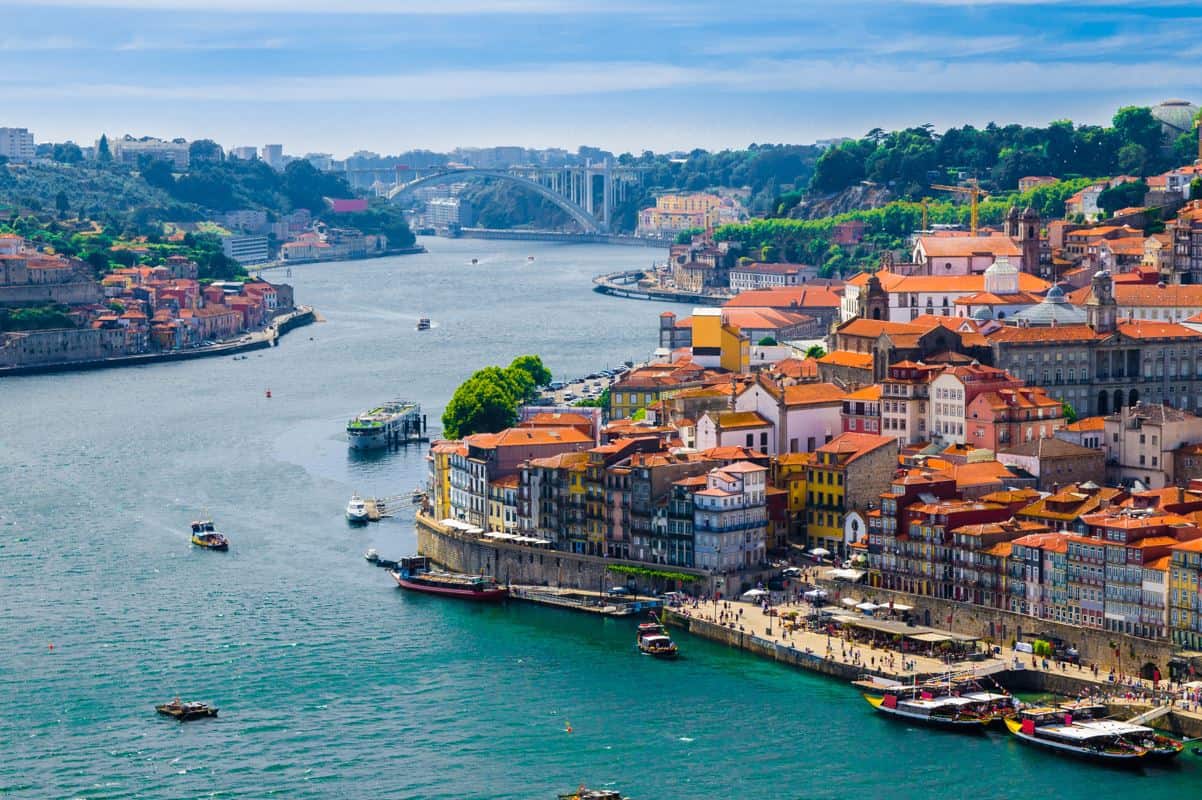In a much-anticipated announcement, Portugal has released the details for a new visa targeted at digital nomads. The aim of this program is to attract remote workers and entrepreneurs to Portugal.
The new visa program begins October 30, 2022, and will allow digital nomads to spend up to one year in the country.
After one year, visa holders will be able to apply for residency and stay in Portugal for up to five years.
Whether you are employed by an American company and have the ability to work remotely from abroad, or you are self-employed or a freelancer, this new visa will allow you to live and work in Portugal with ease.
Previously, there was not a clear pathway for remote workers who wanted to work in Portugal to achieve residency. Would-be expats typically had to apply for the D7 visa, which was mainly targeted at retirees.
But this new visa program simplifies the pathway to living and working in Portugal as a digital nomad.
Additionally, visa holders will be able to travel freely throughout the Schengen Zone, which is made up of 26 countries in Europe where Americans can typically only spend 90 out of every 180 days.
Portugal has long been a hub for digital nomads, attracting remote workers who are drawn to the country’s laidback lifestyle, delicious food, beautiful sunny climate, and low cost of living compared to the rest of Western Europe.

Although prices have increased in recent years, it’s still affordable compared to many neighboring countries, and digital nomads have been flocking to cities like Lisbon and Porto.
While Portugal’s new digital nomad visa sounds almost perfect, there is a catch: it comes with a higher barrier to entry than many similar programs.
High Monthly Income Requirement Makes Portugal’s Digital Nomad Visa Less Attainable
In order to qualify for Portugal’s digital nomad visa, you must earn more than four times the monthly minimum wage in Portugal, which works out to €2,750 (≈$2,668 USD) per month.
When applying for the digital nomad visa, you must provide proof of employment or self-employment that demonstrates your average earnings over the past three months that total at least €2,750 per month.
This higher threshold makes Portugal’s digital nomad visa less attainable than similar programs, which offer lower earnings requirements for visa applicants.

Considering that Portugal is known for its low cost of living and the fact that you can live comfortably on €2,000 (≈$1,940 USD) a month or even less, the current earnings requirement is out of reach for many prospective digital nomads.
Similar Digital Nomad Visa With Lower Income Requirements
Many other countries are starting to offer digital nomad visas to entice remote workers. And with less stringent requirements for applying for one of these visas, it will be difficult for Portugal to compete.

For example, Bali offers a digital nomad visa that is good for six months and can be extended for up to five years. It has very minimal requirements, and there is no monthly income needed to apply. Recently it was reported that even a 10-year visa program is in the works.
Colombia has also recently launched a digital nomad visa which allows remote workers to live and work in Colombia as long as they can demonstrate monthly earnings of approximately $684 USD per month.
And within Europe, the affordable Baltic country of Latvia offers an attractive digital nomad visa with a more attainable income threshold of approximately $1,302 USD per month.
More than 10 other European countries offer digital nomad visas for foreigners who want to work remotely abroad.
Even without applying for a visa, there are other ways that digital nomads can live and work in Europe.
For example, Albania, a burgeoning digital nomad hotspot, offers visa-free travel for Americans for up to one year.
But for travelers who meet the income requirements, the new Portugal digital nomad visa is a good opportunity to live and work in Europe.

